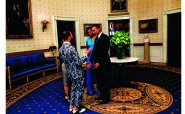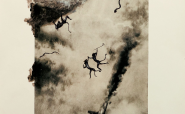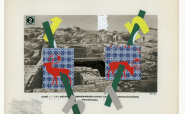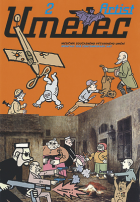|
Artículos recomendados

|
|
Goff & Rosenthal gallery, Berlin, November 18 - December 30, 2006
Society permanently renegotiates the definition of drugs and our relationship towards them. In his forty-five minute found-footage film The Conquest of Happiness, produced in 2005, Oliver Pietsch, a Berlin-based video artist, demonstrates which drugs society can accommodate, which it cannot, and how the story of the drugs can be…
|

|
|
An American poet was invited to the White House in order to read his controversial plagiarized poetry. All tricked out and ready to do it his way, he comes to the “scandalous” realization that nothing bothers anyone anymore, and instead of banging your head against the wall it is better to build you own walls or at least little fences.
|

|
|
"In Cameroon, rumours abound of zombie-labourers toiling on invisible plantations in an obscure night-time economy."
|

|
|
Nick Land was a British philosopher but is no longer, though he is not dead. The almost neurotic fervor with which he scratched at the scars of reality has seduced more than a few promising academics onto the path of art that offends in its originality. The texts that he has left behind are reliably revolting and boring, and impel us to castrate their categorization as “mere” literature.
|
|





Comentarios
Actualmente no hay comentariosAgregar nuevo comentario